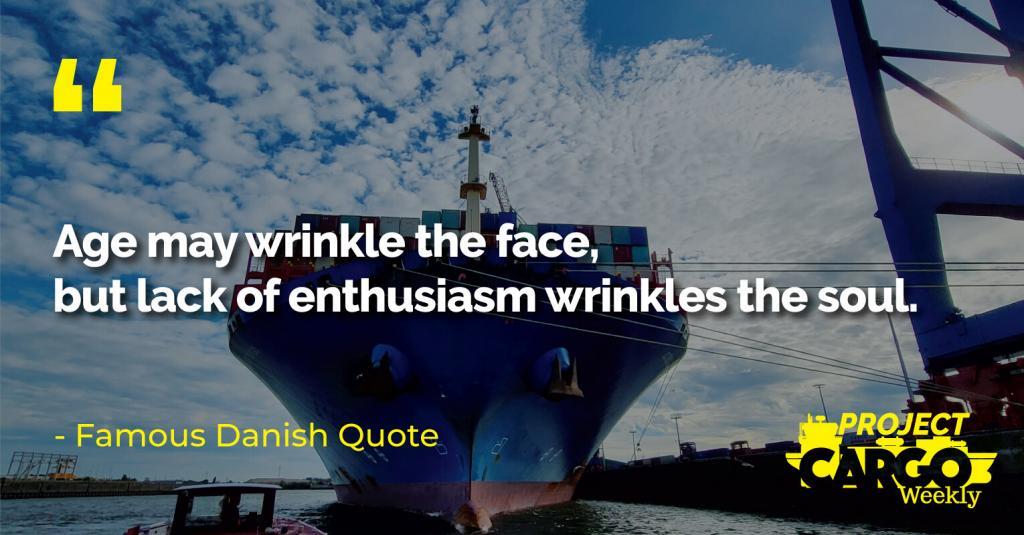
Dear Readers, It is Thursday the 21st of October and week 42.
It is Thursday the 21st of October and week 42.
Winter is approaching fast here in Stockholm. The daylight time is getting shorter, and the weather is getting colder. To me, it always signals a time for reflection. People start to hide themselves in warm clothes, and soon it will be close to dark when you get up as well as when you return from the office. Reflecting on life is a great part of being able to appreciate what you’ve got and also what you have achieved. We spend most of our lives running in order to get this or that. Then, for the last quarter of our lives, we often (I think) forget to enjoy, relax, and contemplate the life we have had. For me personally, I am kind of “kept young”: with my oldest (son) being 32 and my youngest (daughter) being 5, I have made myself a promise to try and stay healthy, alert, and in good spirits ? until my youngest turns 18. If my calculations are correct, this means until I am 71.
Traveling too is living, and thus, I have slowly started to embark on both European and overseas trips again. What a pleasure it is to meet with contacts, friends, and family face-to-face again.
Over the next few months I am planning several trips, first a follow-up trip to see my parents in Grenå, Denmark, followed by a quick trip to Finland, then two weeks in the Åland Islands (between Sweden and Finland) for their annual Maritime Day and finally a week in Qatar and the U.A.E.
Fighting at home and explaining why the trips are necessary are, of course, for some business people (including the undersigned) a part of life. I have no doubt that most of you know what I mean, i.e., finding the balance between family and work is always difficult, and if you are a believer in doing things properly, you cannot cut corners. Yes, you may still be able to get away with some zooming but NOT for long if you mean business long-term.
Here in Sweden right now there is a paradoxical state of having high unemployment whilst also having thousands of jobs that are impossible to fill, particularly in the hotel / restaurant sector. I dare say that a rather large part of our unemployment also is due in part to benefits being overly generous. Thus, people are unwilling to leave their comfort zones and take the jobs that ARE available because the gap between the income while on benefits versus the income gained by working can be minuscule. We leave this to our politicians who always, at the end of their tenure, are busy to “position” themselves for another gravy train departure either in Brussels or at one of the many embassies we’ve got worldwide, overlapping each other with the local EU embassy. I haven’t checked recently whether the transportation circus between Brussels and Strasbourg is on again, but I have no doubt as too many businesses depend on it, and I guess Strasbourg would become a banlieu [i.e., city on the outskirts] without it.
I need also to advise you as readers that PCW will take a temporary break due to traveling. There will not be a newsletter during week 45 (November 11) nor week 46 (November 18), so that we can return to your Inbox on November 25 with myself fully recharged after my Middle East trip.
On the political front, nothing much to comment from the week passed. The supply chain situation, overall, is still in dire straits, and now, due to the energy crunch and massive price hikes, it may turn into a cold winter for many—not to mention that several fertilizer factories stopped production due to the cost of electricity which will mean problems for the agricultural sector next year too — and we do need to eat…all of us.
Right… back to the reason for PCW in the first place, and that is, of course, shipping.
We start off by visiting the U.A.E. and Dubai and speak to an Asian Tiger there — or rather to Asian Tiger Shipping LLC, a company involved as a shipping agency, RORO agency, and dealing with all kinds of modern logistics. They paint an interesting picture of the U.A.E. as a true global hub through this online interview we had earlier in the week.
We then visit the land of the Rising Sun, wonderful food, and what I believe is the city of the largest subway network in the world, Tokyo HABA-SPED Logistics Japan K.K. is the company we talk to in Japan.
Finally, we remind you of an interview we had in a country that I also visited recently, Poland, and we talk here with Smart Cargo Solutions, and they do live up to their name I think!
Finishing off with our usual condiments such as shipping news, trade intelligence, featured video and photo of the week, and last but not least wise words!
Until next week, we remain,
Yours sincerely,
Bo H. Drewsen
bo.drewsen@projectcargo-weekly.com

Video Interview
Asian Tiger Shipping LLC – Dubai, U.A.E.
Srinivas, CEO and Deepesh Rajan, Dep. GM at Asian Tiger Shipping LLC, Dubai, UAE interviewed by Bo H. Drewsen, Editor in Chief at Project Cargo Weekly.
HABA-SPED Logistics Japan K.K. – Tokyo, Japan
Interview with
Mr. Gian-Andrea Silvani
Owner

We always hear that Japan is a market that is very traditional, also in logistics. What is your view about the logistics market in Japan overall?
Correct. Like most businesses in Japan, the logistics sector is very traditional in the sense that long-term relations are important and treasured. It’s a very mature market, same as we find in most developed countries.
Apart from the worldwide known brands such as Toyota, Sony, Honda, etc., there are a wide range of lesser known companies, manufacturing goods from simple daily items to high-end tech items for use in Japan and around the world. Due to the size of the country, there is also a large import market for any kind of goods from around the world.
Many companies are tied up with a domestic logistics provider and have a very close cooperation which extends to the international shipping part. That’s one of the reasons we often hear that Japanese companies work only with the Japanese, which is true to a certain extent. Also, the decision-making processes in Japan are somewhat mysterious.
Smart Cargo Solutions – Warsaw, Poland
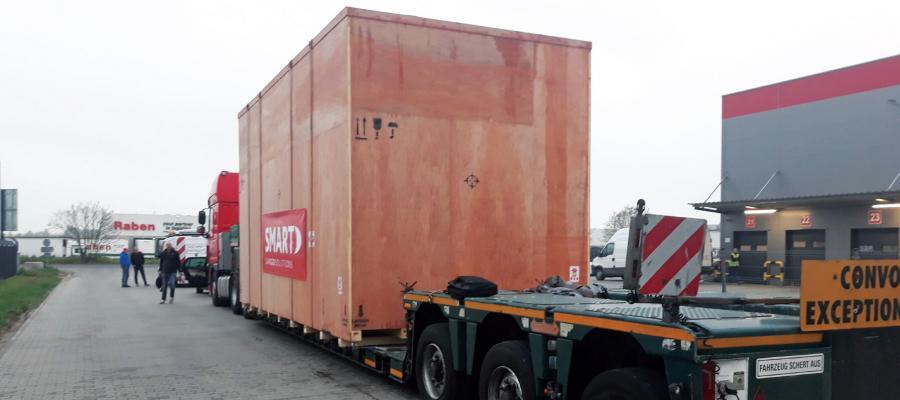
Interview with
Mr. Piotr Iwaniuk
CEO
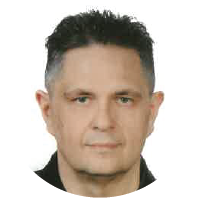
Poland is a huge country, and you have both maritime and land borders. Tell us about the main ports used in Poland for project cargo, and tell us about the main border crossings for transport into Eastern Europe?
Poland’s access to the sea is realized through several access points – the main of those being Gdynia and Gdansk (which are both part of an entity called “Tricity” The third one being Sopot, more of a holiday destination. Since they are so close to each other, driving through them, an outsider would not know in which city he actually is at the moment. However, at the western corner of Poland, bordering with Germany, there is also the port of Szczecin. In all those ports, with different capabilities, project cargo can be handled through several terminals, varying in terms of handling equipment and capabilities.
In terms of land transportation from or to those ports, there are many options, including rail and barge transportation – the latter being tricky in some seasons of the year due to the depths of the rivers for sailing. There are many border connections with all the neighboring countries, so it is hard to say which ones are “main”. This all depends on the type of cargo that is being moved, which is connected with needed road/bridge infrastructure. The element that can not be forgotten is customs formalities and regulations, if we are talking about movements to, from or through non-EU neighboring countries (Ukraine, Belarus, Russia).

Permafrost Thaw is Threatening Homes and Infrastructure in Siberia and the Russian Arctic
Editor’s Note:
With permafrost thawing in places and the Northern Sea Route becoming more and more accessible, it does impact on shipping, too. Here an interesting article about people actually living “up there”, far away from the powers that be.
The old airport in the Siberian settlement of Churapcha has been unusable for years, its runway transformed into a swampy field of puffed-up mounds and reliefs.
Like cities and towns across northern and northeastern Russia, Churapcha is suffering the consequence of climate change thawing the permafrost on which everything is built.
Investigators Say MSC Containership Dragged Anchor Near Broken San Pedro Bay Pipeline in January
Editor’s Note:
And as usual in the US, some lawyers will no doubt have a field day again whilst they will perhaps hold a cup of “coffee” from McDonalds with the warning on “contents hot” —which also was a result of a lawsuit years ago. Let’s hope common sense prevails this time around?
U.S. Coast Guard and National Transportation Safety Board (NTSB) marine casualty investigators boarded the containership MSC DANIT in the Port of Long Beach on Saturday after the ship was identified as having dragged its anchor near the source of the pipeline leak during a heavy weather event back on January 25, 2021.
It’s All Going ‘Tits-Up’ At UK Box Ports and, Despite What Boris Says, We Can’t Fix It
Editor’s Note:
And the clogging of our infrastructure veins and supply chains keeps on unabatedly. In short, we simply gotta stop buying from overseas and start producing more at home, but greed led us in the first place to outsource our production, didn’t it?
The UK’s main container ports are overwhelmed with unclaimed imports and starting to refuse the restitution of empty boxes urgently needed back in Asia.
And other North European ports are also heavily congested, but the acute HGV driver shortage in the UK has extended container dwell times significantly in past weeks, with the country’s main box hubs now “in danger of grinding to a complete halt”, according to one industry observer.
Jason Zuidema, CMA Shipping interview
Editor’s Note:
The difficulties of the seafarers during this whole pandemic circus is not to be underestimated. PCW says again: ”If you contemplate giving yourself a bonus as a shipowner, make sure your seafarers get one, too. If anyone, they deserve it!” Here, a YouTube clip from a recent shipping conference in North America about that very thing.
Dr. Jason Zuidema, Executive Director, NAMMA talks about the difficulties vaccinating the world’s seafarers and the plight of taking care of the key workers that keep the global economy moving.

Construction Works on Egypt’s First High-Speed Railway Begins
Construction works have begun on Egypt’s first high-speed railway from Ain Sukhna, parallel to the Hurghada road, to Marsa Matrouh, respectively on the Red Sea coast and the Mediterranean coast, have begun.
The project is planned to have four legs. The first line is planned to run from Ain Sokhna, through Egypt’s New Administrative Capital, to El Alamein on the Mediterranean coast, while the second leg of the railway will link the Red Sea’s main port with Alexandria and the port of Matrouh Gargoub.
TEPCO to Help Singapore’s SP Group Build Underground Substation
Tokyo Electric Power Company Holdings Inc. and two other Japanese companies have signed a contract to provide consulting services to Singaporean utility SP Group over an underground substation project.
Tokyo Electric Power, known as TEPCO, said the deal is designed to address challenges associated with the construction of Southeast Asia’s first 230kV-class below-ground substation in the southern harbor area of Labrador, which is scheduled to be completed in 2024.
Diamond Fields Buys West African Gold Explorer
Through the acquisition, DFR will gain a right to an 80% controlling stake in an advanced exploration stage gold project, Labola, in Burkina Faso and exposure to minority, joint venture interests in projects located in Mali.
“By combining Moydow’s strong, gold-focused operational competence in West Africa with DFR’s access to financial markets and development skills the company expects to rapidly progress the prospective Labola project,” said DFR CEO Sybrand van der Spuy.
Tirupati Graphite Snaps Up Mozambique Strategic Graphite Projects from Battery Minerals
Tirupati Graphite PLC Shishir Poddar, chief executive, joins Proactive London’s Katie Pilbeam to explain why they have agreed to buy strategic graphite projects in Mozambique from ASX-listed Battery Minerals Ltd for A$12.5mln (£6.6mln) in a cash and shares deal.
Poddar says this deal will ‘complement Madagascar’ because they ‘mix’ and will ‘mitigate our country risk’ as well as the fact these are already ‘advanced projects’.

Close-up of a Greek-owned Ship Chartered-out to Evergreen Alongside Burchardkai
Editor’s Note:
Some footage again here from the port of Hamburg tour that I took recently. A closeup of what seems to be a Greek-owned ship chartered out to Evergreen alongside Burchardkai.

Editor’s Note:
Yang Ming Line, owned by the Taiwanese government, are also having larger tonnages in play—at least relatively so. As the smaller of the Taiwan owned megacarriers, a YML vessel is seen here alongside in Hamburg during a recent port tour.


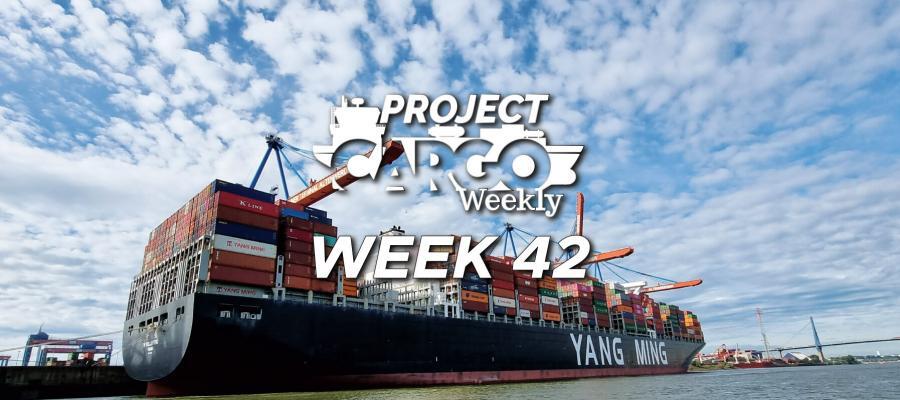
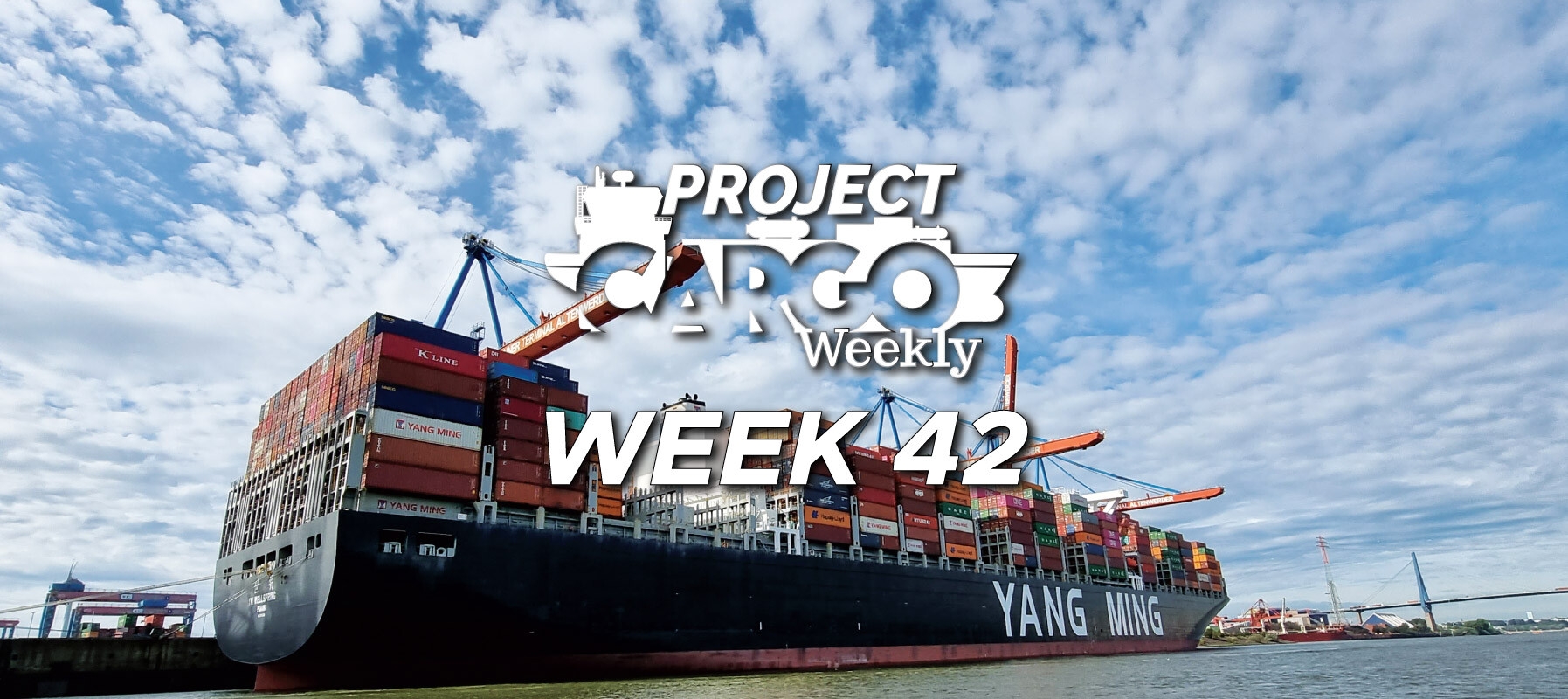

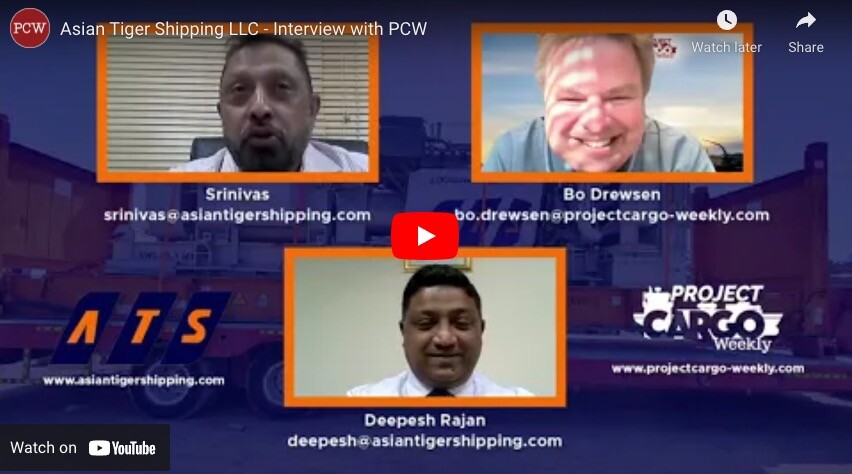
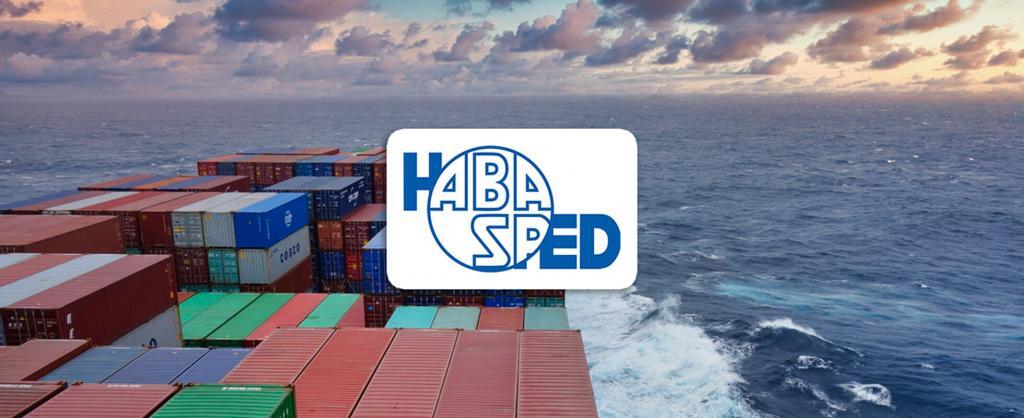

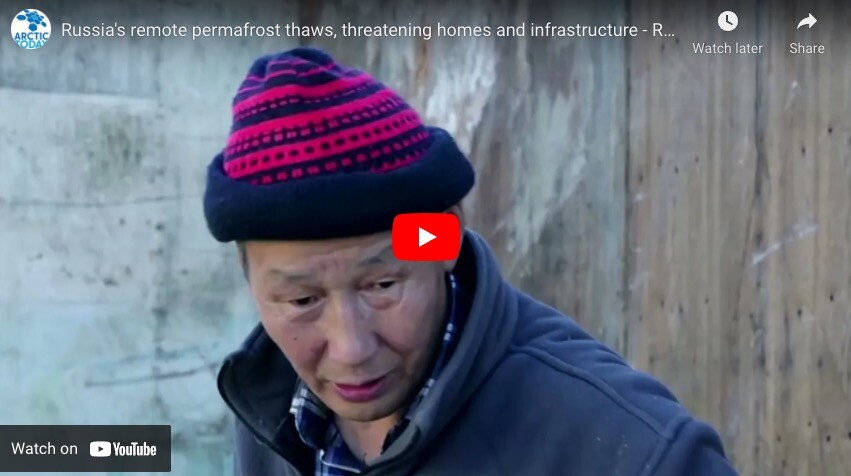
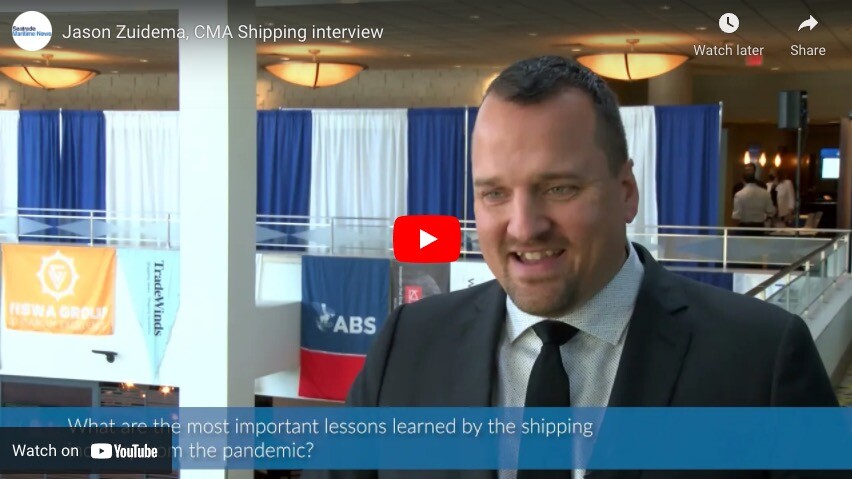


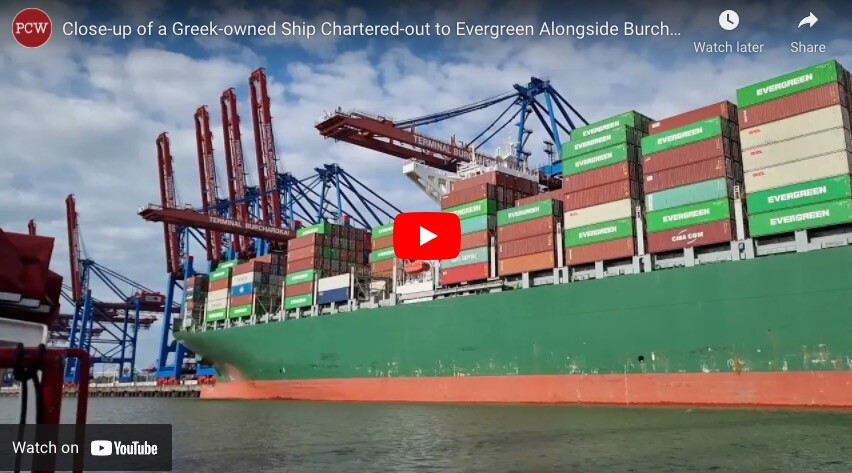
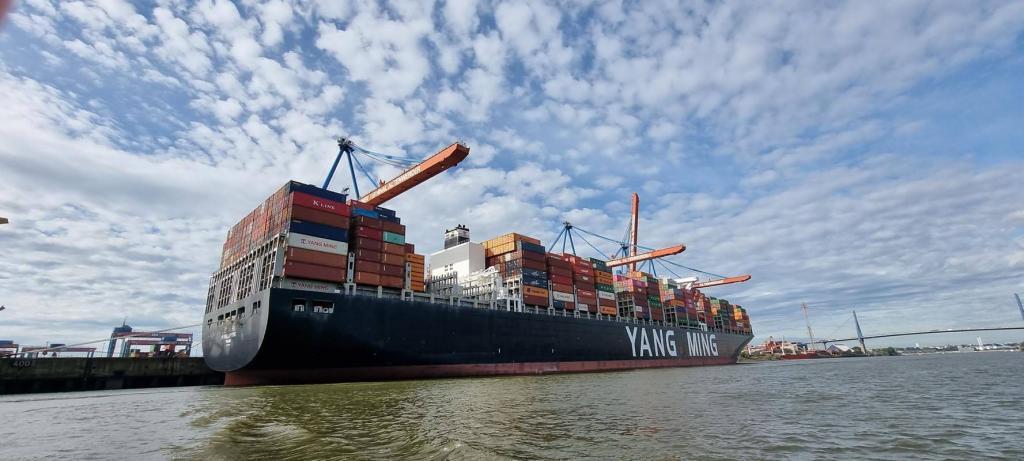

![A stern creditor is [often] a poor payer.](https://www.projectcargo-weekly.com/wp-content/uploads/2021/10/PCW-Week-42-2021-Proverb-1024x535.jpg)
